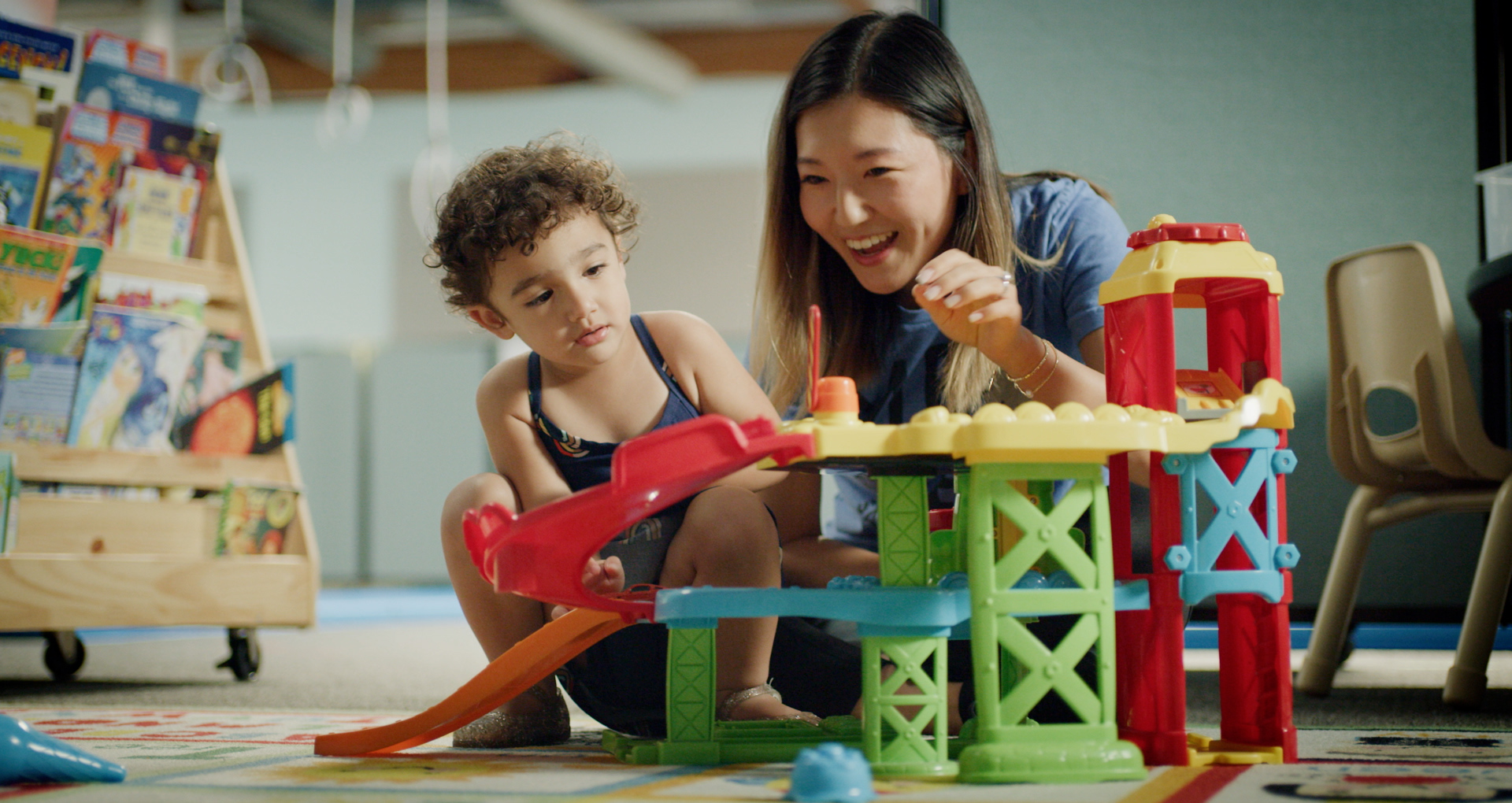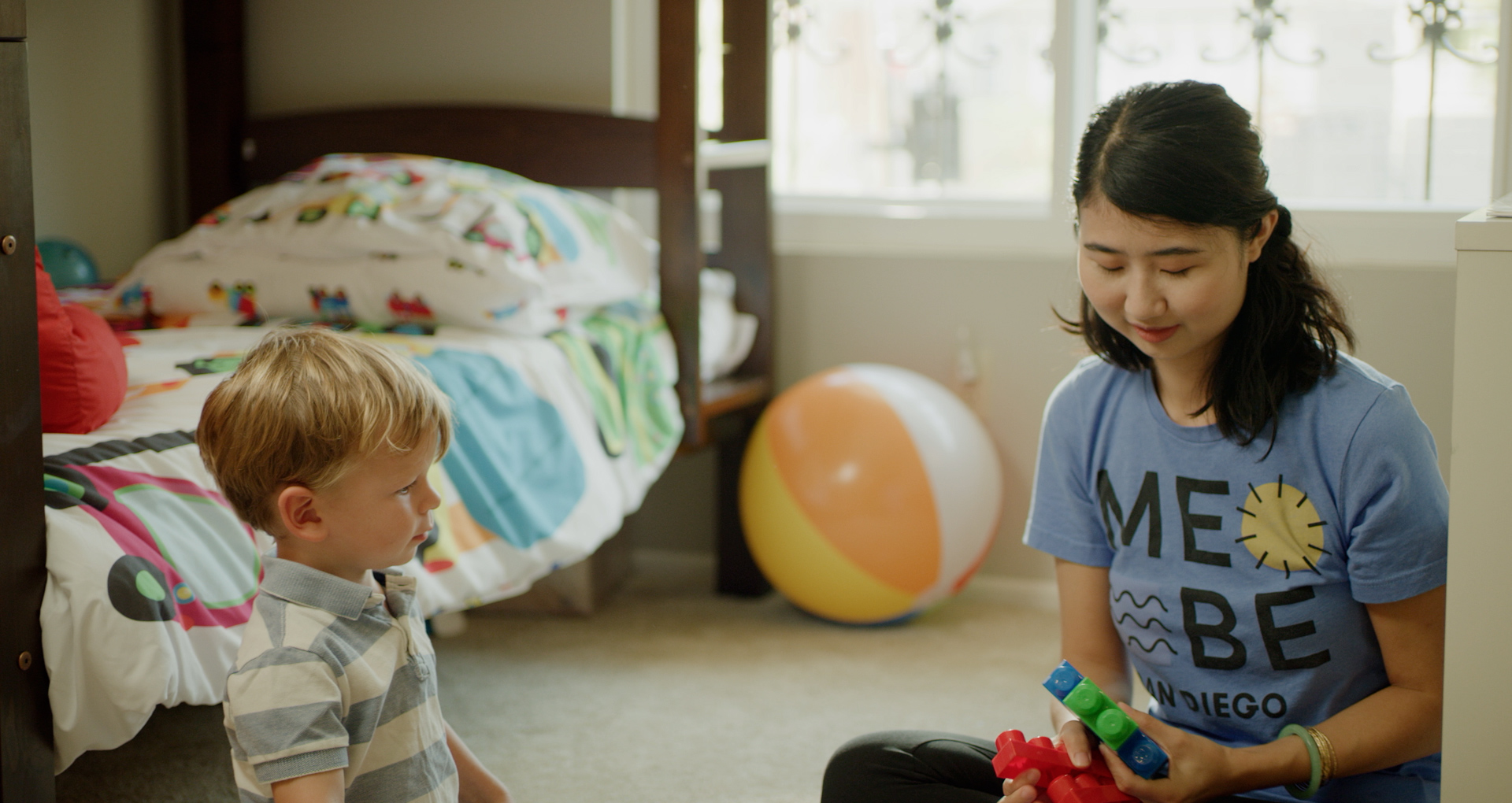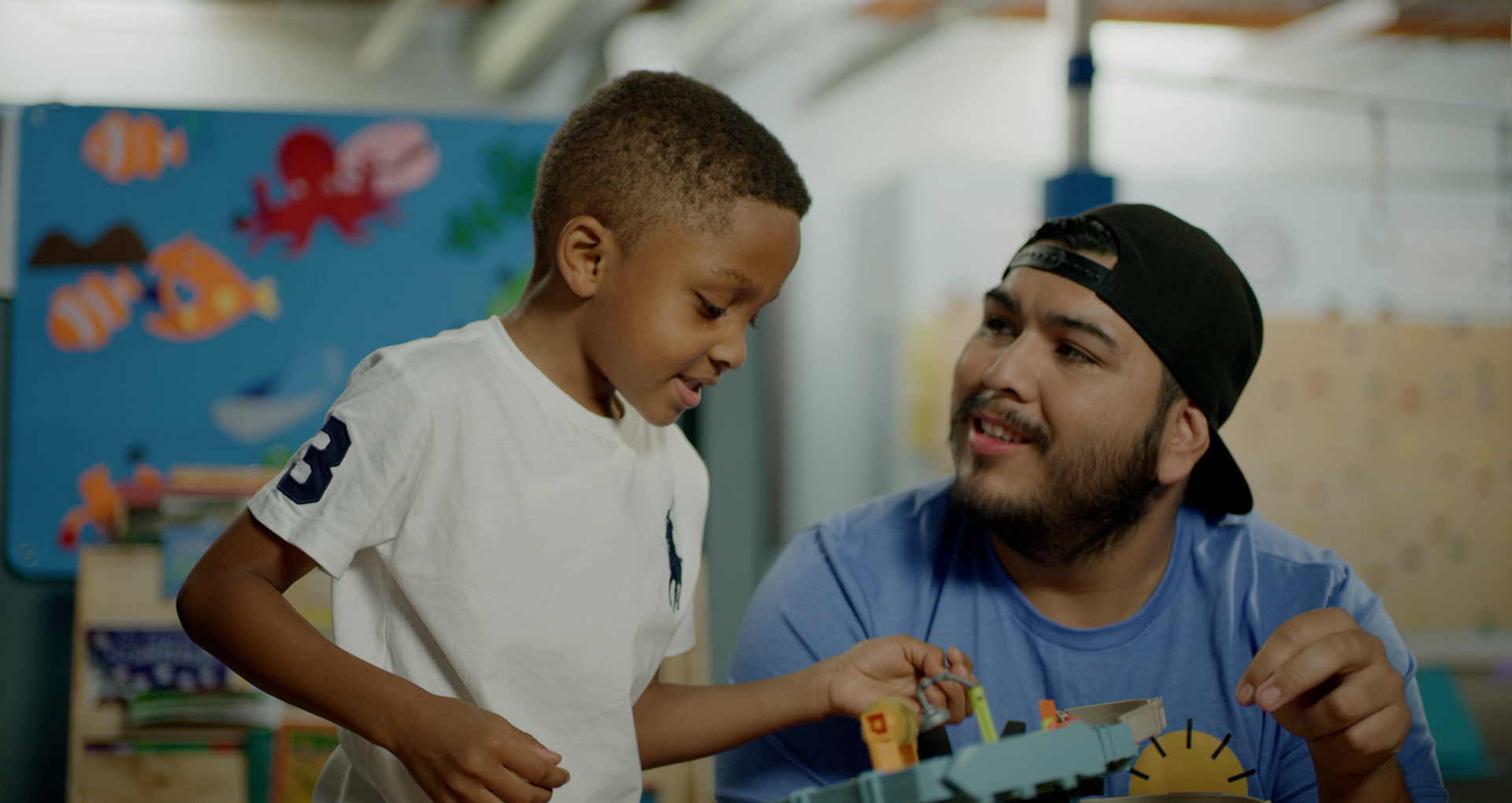When families receive an autism diagnosis for their child, they are often referred to Applied Behavior Analysis (ABA) services, and may also be referred to Speech and Language Therapy and Occupational Therapy services. Parents often ask, what is ABA therapy? And, how can ABA therapy help my child?
To help address these questions, the MeBe team of Board Certified Behavior Analysts have provided answers to common questions about ABA services for children with autism spectrum disorder.
What is Applied Behavior Analysis?
Applied Behavior Analysis (ABA) is a therapy based on the science of learning and behavior, and it helps us understand how behavior works, how behavior is affected by the environment, and how learning takes place.
It also helps us learn how to increase skills that you may want to teach your child (e.g., asking for items, following directions) and decrease behaviors that you want to reduce (e.g., tantrums, hitting).
ABA involves many techniques, including:
-
- Positive Reinforcement: When a behavior is followed by a desirable consequence, that behavior is likely to occur more often.For example, if a parent laughs every time a child makes a silly noise, the child will continue making silly noises to get the laughs! In this scenario, the parent’s laughter serves as positive reinforcement for the child’s silly behavior.
-
- Prompt: A cue to encourage a specific behavior. This means providing assistance for a behavior to occur. The assistance or cue can be visual, gestural, verbal, model, or physical.For example, if a child is working on washing their hands, we can prompt the child to initiate washing their hands by pointing to the faucet for the child to turn on the water. Or, we can model the action of scrubbing hands. We could also have a handwashing poster that shows the step-by-step directions to use as a visual aide.
- Natural Environment Teaching: Capitalizing on teaching opportunities as kids play in their natural environment, such as their home or school, while using activities that engage and motivate the child.For example, as a child is playing with blocks, we could teach them to identify different colors by having them label each color block as they stack and build a tower!
How can ABA help my child?
At MeBe, our goal is to help kids and their families live their best life. That might look like helping your child learn to communicate so that they are less frustrated and can get their needs met, resulting in fewer tantrums during the day. It may mean helping your child learn to play and interact with others so that they can make and maintain friends at school. It could also mean helping your child learn to get dressed or brush teeth by themselves so that they can gain some independence.
We truly value each child’s individuality and personality and will work with you to set unique goals for your child and family.
At MeBe, one size does not fit all. Our main priority is to set goals that specifically address your child’s needs to help them accomplish those big goals in life you might have for them, like going to college or having a family of their own one day.
We want your child to be the best version of themselves – to truly “be me.”
What skills can ABA help my child learn?
To start, our Board Certified Behavior Analysts (BCBAs) will assess your child’s skills and create an individualized treatment plan, designed for their specific needs. We focus on addressing areas related to autism traits such as communication, attention, social skills, and adaptive skills.
We also focus on decreasing challenging behaviors, such as tantrums or aggression, that might be interfering with your family’s ability to function on a daily basis. We’ll start by identifying when and why those behaviors are occurring, then create a plan to address the issue. We will also equip you with strategies to prevent behaviors from happening too!
In addition, since ABA is about learning and behavior, you can apply the principles of learning to any skill. For example, our BCBAs may provide training to you about how to teach your child a new skill like identifying family members by name or answering personal information questions such as their home address.
Once you have learned those foundational teaching skills, the sky’s the limit! You can use those same methods to teach your child their colors or numbers, how to write, or even more complex skills like mathematics!
How are parents involved in ABA therapy?
Caregiver coaching, also referred to as parent training or parent education, is an important part of the ABA services provided to families at MeBe.
We collaborate with parents and caregivers to work on meaningful goals for your child’s specific needs. We work to empower parents and caregivers with the tools, strategies, and confidence to promote positive behaviors and develop fundamental skills, in the home and in the community.
In addition, MeBe provides free parent education webinars each month in our MeBe Learning webinar series. All of the recorded webinars are available on the MeBe Family YouTube channel. Check the MeBe Family Resources page for upcoming free parent webinars.

What does an ABA session look like?
At MeBe, we provide center-based and in-home ABA services. Each child receives one-on-one ABA therapy from a Registered Behavior Technician with supervision by a Board Certified Behavior Analyst (BCBA).
To start, a Board Certified Behavior Analyst (BCBA) will assess your child’s skills, work with you to develop goals, and create a personalized plan for your child. The Registered Behavior Technician (RBT) will work on the programs with your child during individual ABA sessions.
Programs can include adaptive skills (toileting, dressing, tying shoes, brushing teeth), communication skills (requesting or labeling items), and social skills (turn taking or cooperative play with peers).
For younger children, ABA sessions may look a lot like play. Registered Behavior Technicians follow the child’s lead and engage with them based on their interests. They might build puzzles, play with cars, dinosaurs, or dolls, or run around and play tag!
While the RBT is playing and interacting with the child, they are constantly working on skills in the child’s program to help make progress toward their individual goals. By using activities that interest and motivate the child, they are developing skills in a way that excites that child to learn.
At MeBe, learning is fun!
In addition, Registered Behavior Technicians and Board Certified Behavior Analysts take data for ongoing progress analysis. They use this data to adjust programs and develop new goals

Learn more about Applied Behavior Analysis
For more frequently asked questions about ABA therapy, watch the MeBe ABA: 101 video series, available in English and Spanish.
If you’re ready to learn more about Speech and Language Pathology, Occupational Therapy, Feeding Therapy, or Applied Behavior Analysis services at MeBe, contact us today.
For helpful tips from the MeBe therapy team, check out @mebefamily on Instagram and Facebook and visit the MeBe Family YouTube channel or watch the video posted below.

